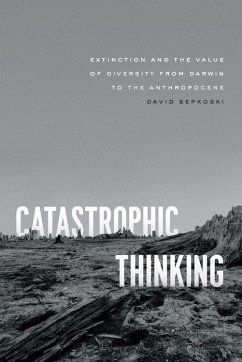"It seems self-evident to most of us that diverse ecosystems and societies are intrinsically valuable, but in fact the current fascination with diversity is a relatively recent phenomenon. What is also clear from our current perspective is that the way we value diversity depends crucially on our sense that it is precarious-that it is something actively threatened, and that its loss could have profound consequences. In other words, fears about extinction permeate current discussions of biological and cultural diversity, and so, David Sepkoski argues, if we better understand the history of extinction, we can make better sense of our fears and anxieties about diversity loss. This book shows why we simply cannot appreciate how and why diversity has become such a central value in our cultural landscape without understanding how extinction came to embody a sense of catastrophic threat"--








